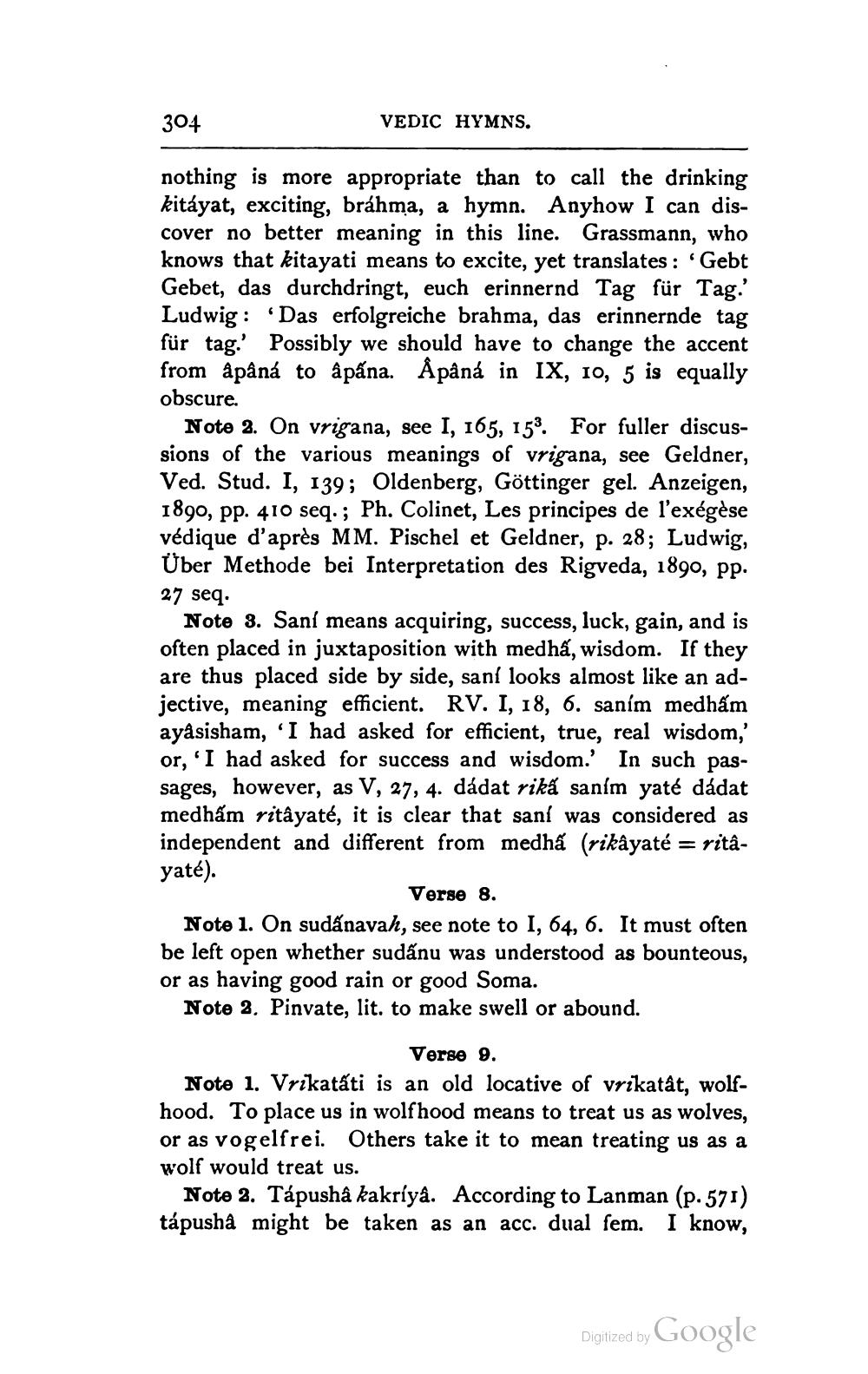________________
304
VEDIC HYMNS.
nothing is more appropriate than to call the drinking kitayat, exciting, brahma, a hymn. Anyhow I can discover no better meaning in this line. Grassmann, who knows that kitayati means to excite, yet translates : 'Gebt Gebet, das durchdringt, euch erinnernd Tag für Tag.' Ludwig : "Das erfolgreiche brahma, das erinnernde tag für tag.' Possibly we should have to change the accent from âpâná to apána. Åpâná in IX, 10, 5 is equally obscure
Note 2. On vrigana, see I, 165, 158. For fuller discussions of the various meanings of vrigana, see Geldner, Ved. Stud. I, 139; Oldenberg, Göttinger gel. Anzeigen, 1890, pp. 410 seq.; Ph. Colinet, Les principes de l'exégèse védique d'après MM. Pischel et Geldner, p. 28; Ludwig, Über Methode bei Interpretation des Rigveda, 1890, pp. 27 seq.
Note 3. Sani means acquiring, success, luck, gain, and is often placed in juxtaposition with medha, wisdom. If they are thus placed side by side, sani looks almost like an adjective, meaning efficient. RV. I, 18, 6. saním medhấm ayàsisham, 'I had asked for efficient, true, real wisdom,' or, 'I had asked for success and wisdom.' In such passages, however, as V, 27, 4. dádat riká sanim yaté dádat medhấm ritâyaté, it is clear that sans was considered as independent and different from medhã (rikâyaté = ritayaté).
Verse 8. Note 1. On sudấnavah, see note to I, 64, 6. It must often be left open whether sudấnu was understood as bounteous, or as having good rain or good Soma.
Note 2. Pinvate, lit. to make swell or abound.
Verse 9. Note 1. Vrikatấti is an old locative of vrikatåt, wolfhood. To place us in wolfhood means to treat us as wolves, or as vogelfrei. Others take it to mean treating us as a wolf would treat us.
Note 2. Tápushå kakriya. According to Lanman (p.571) tápusha might be taken as an acc. dual fem. I know,
Digitized by
Digitized by Google




